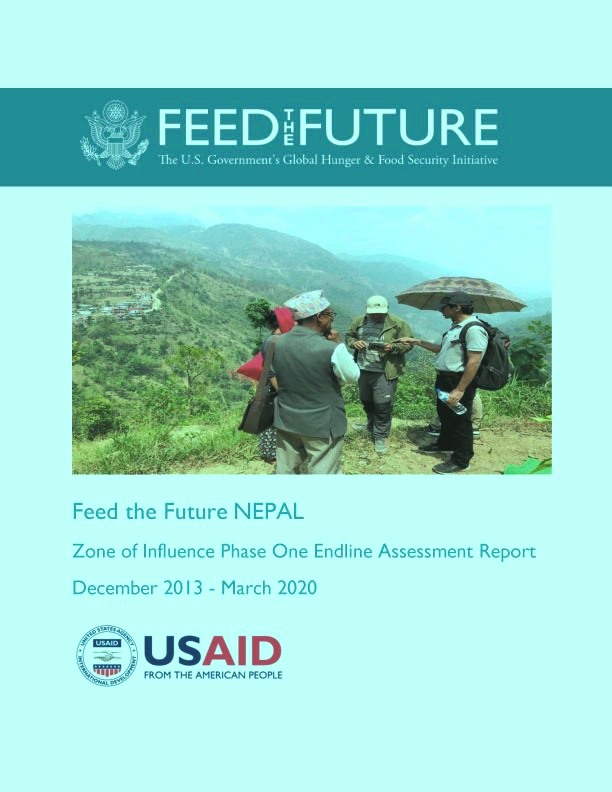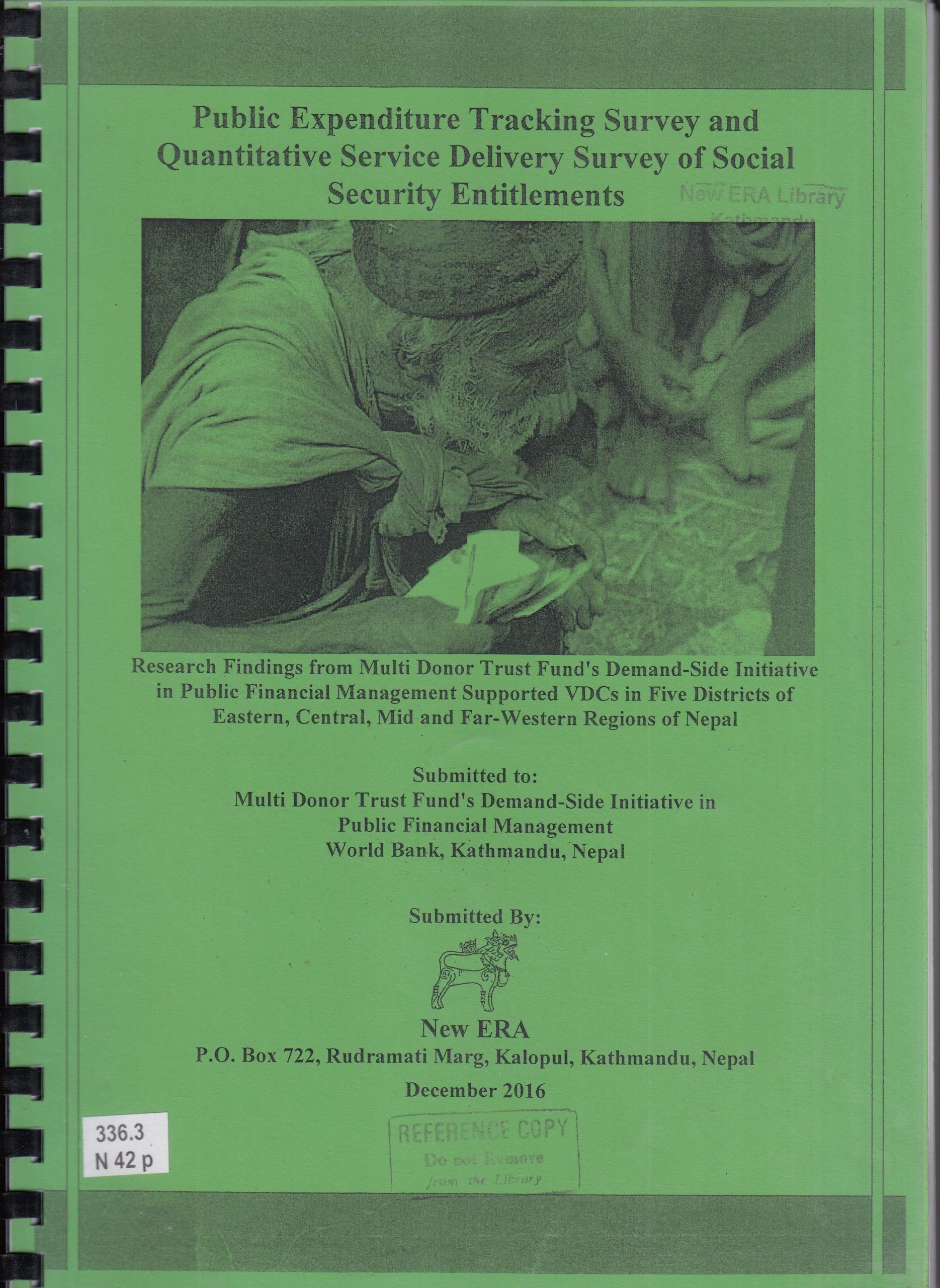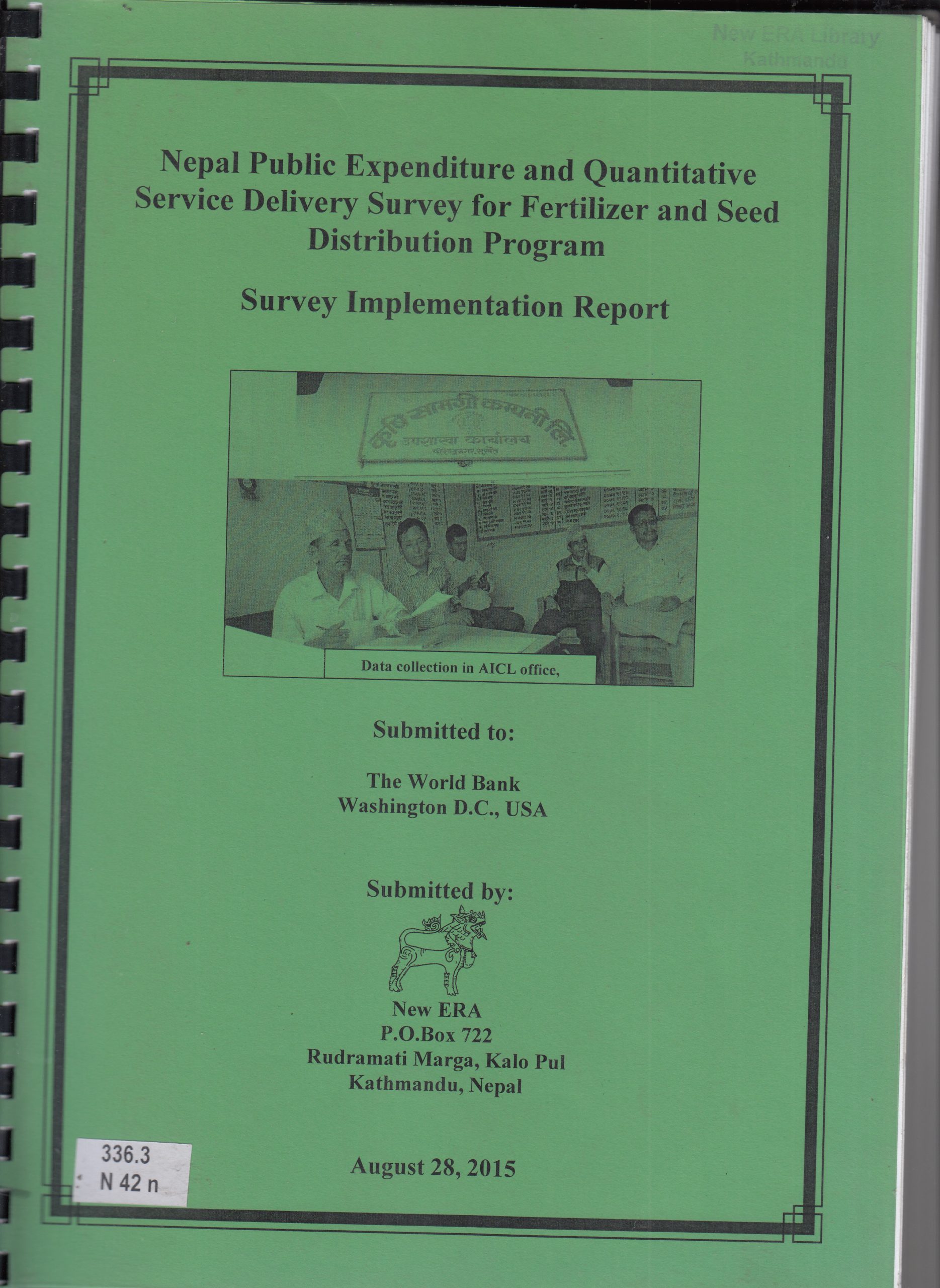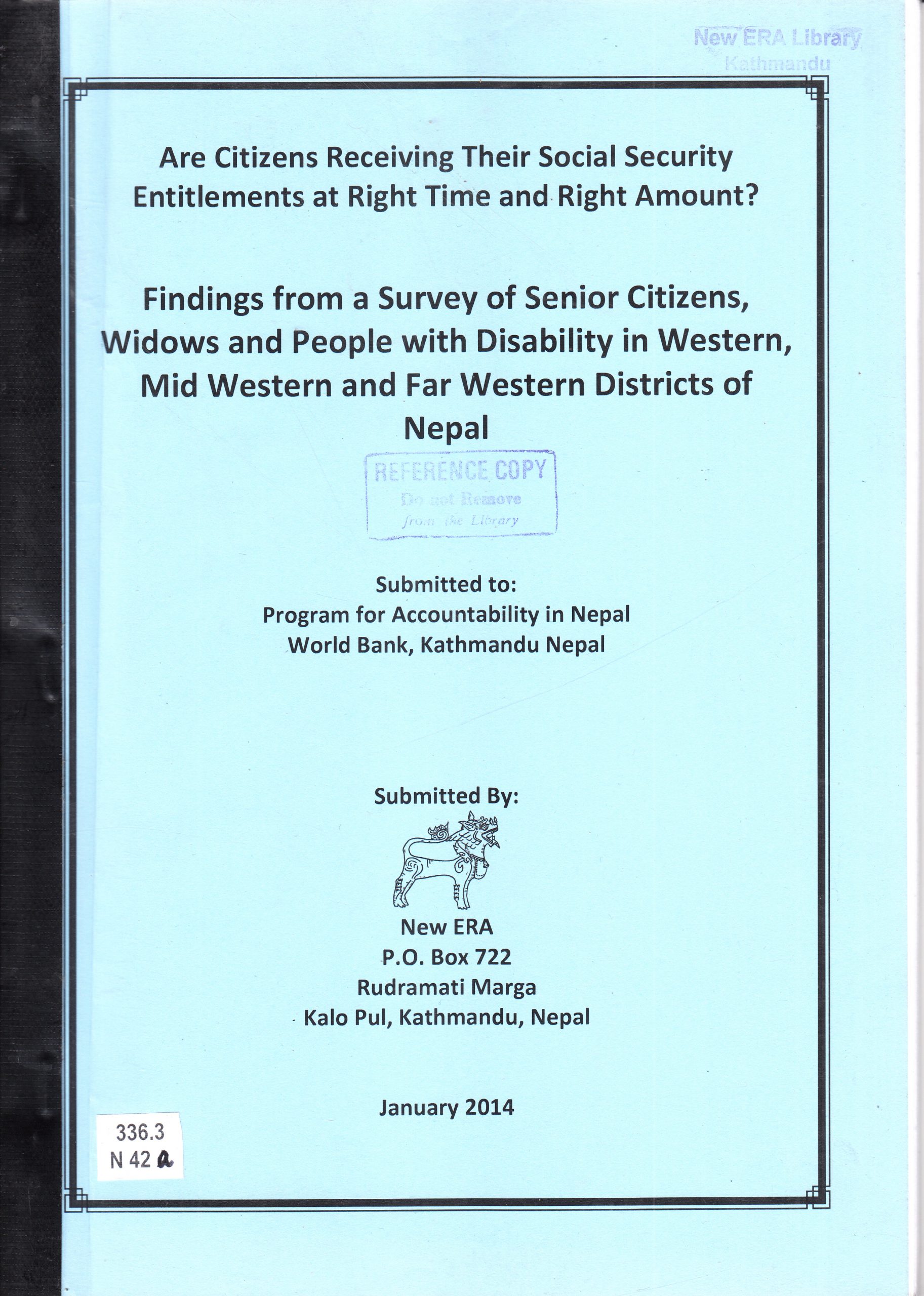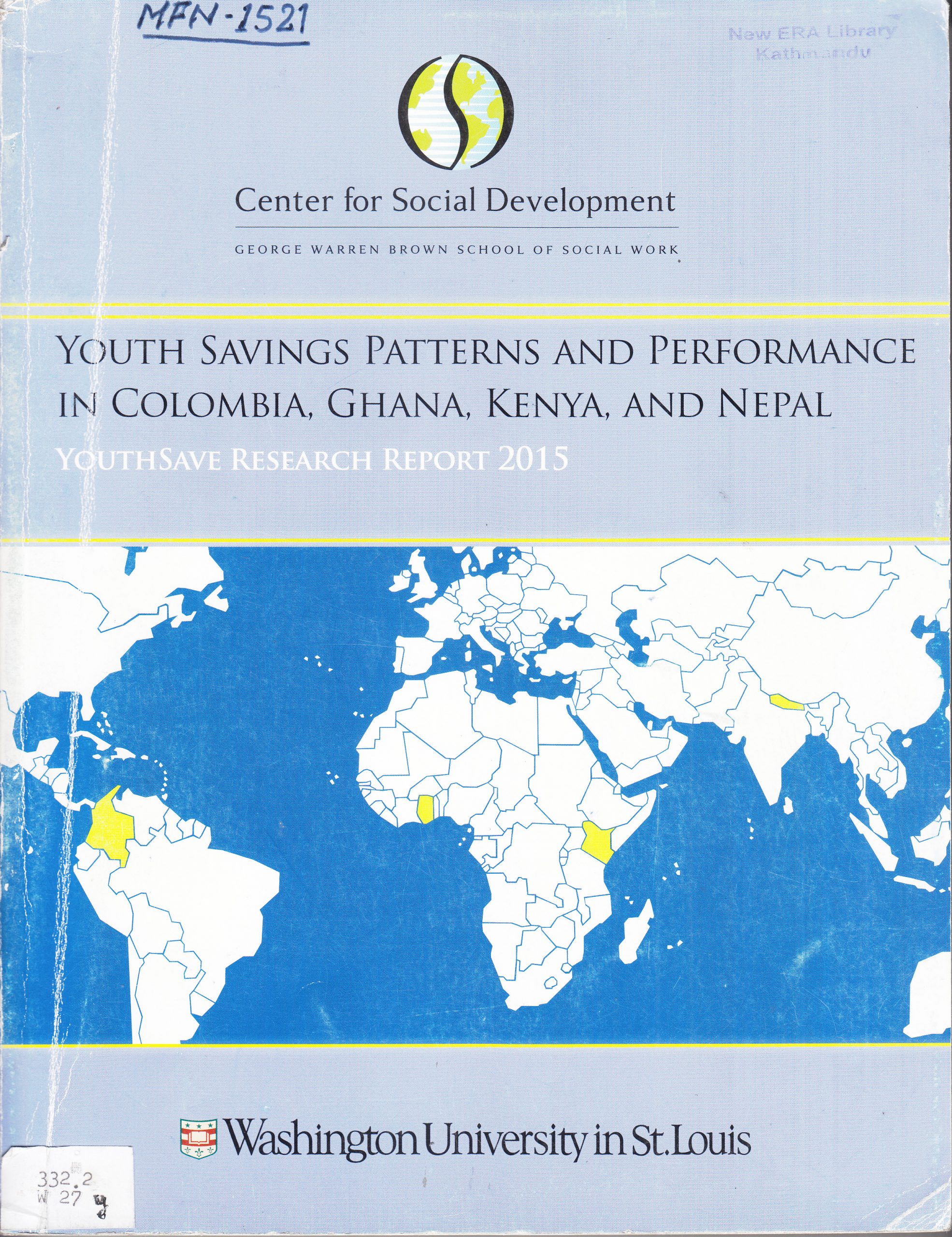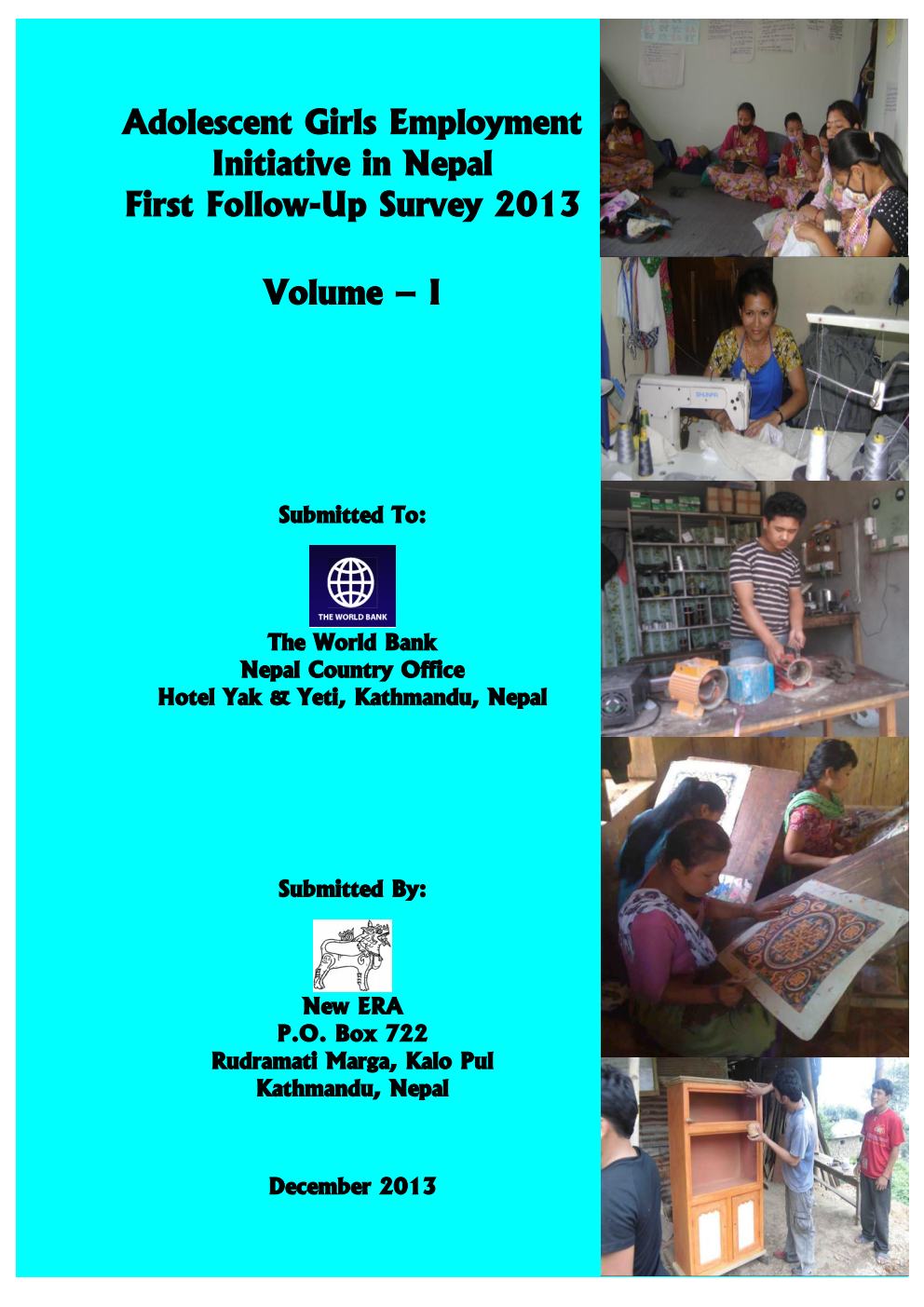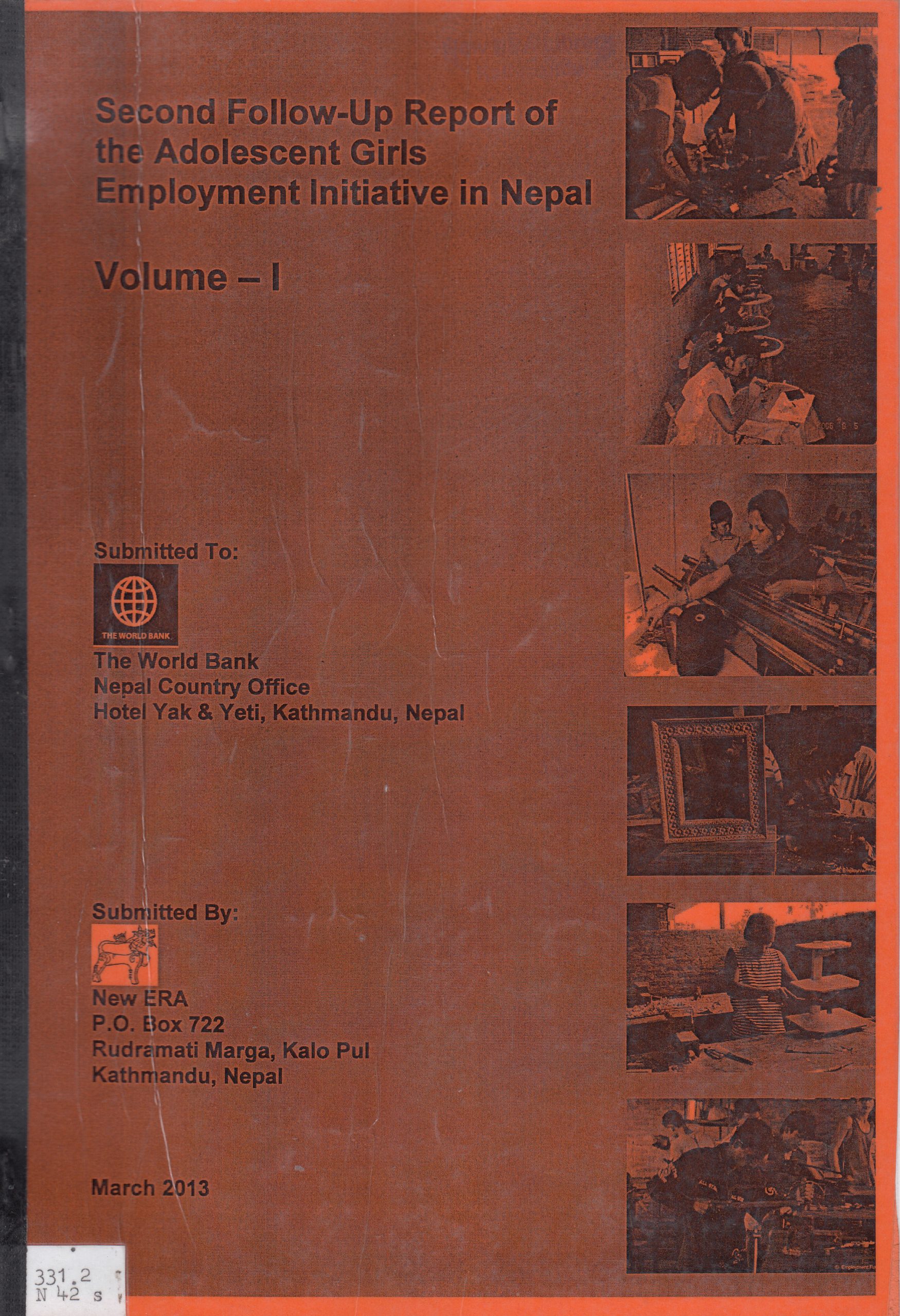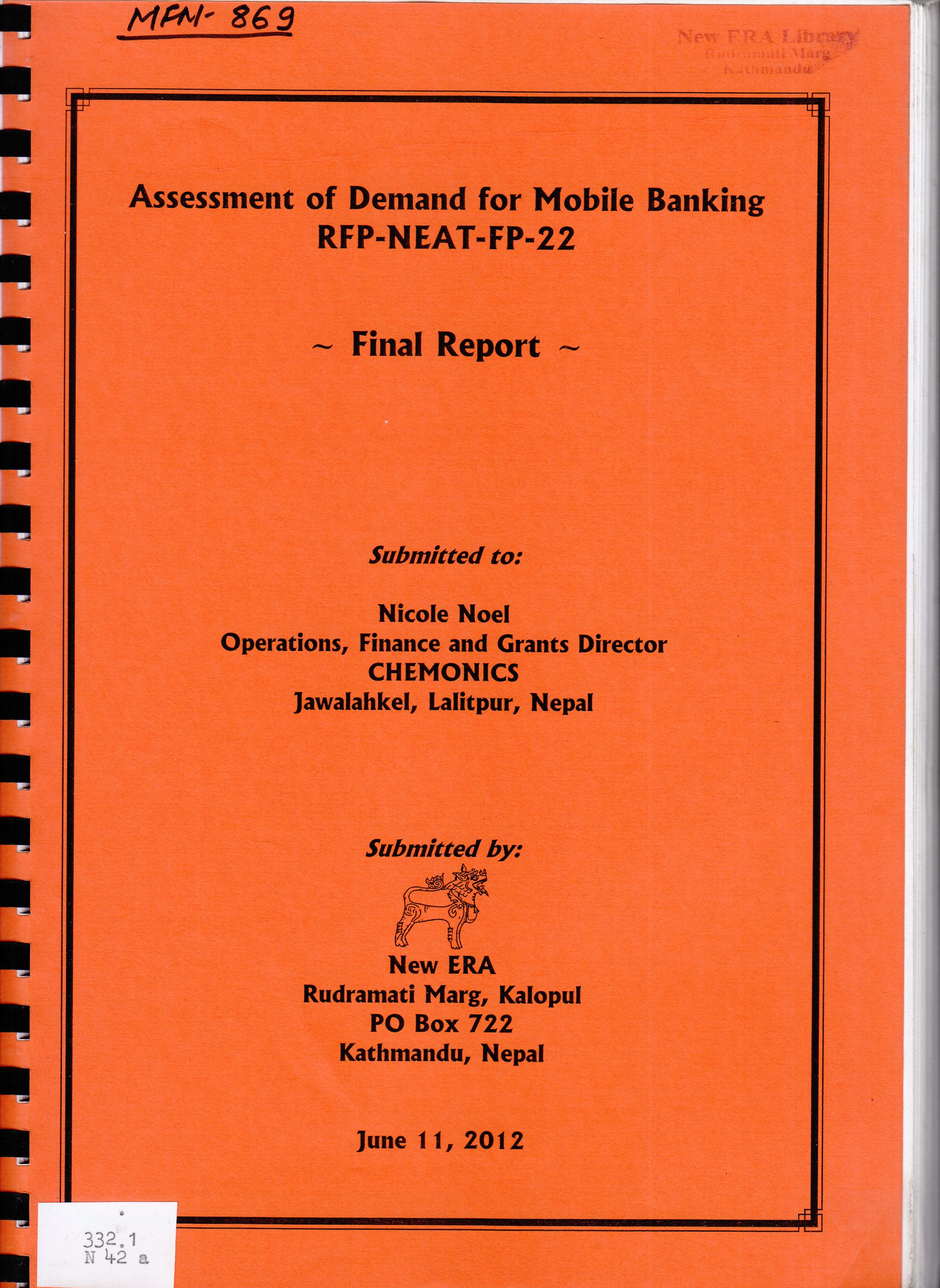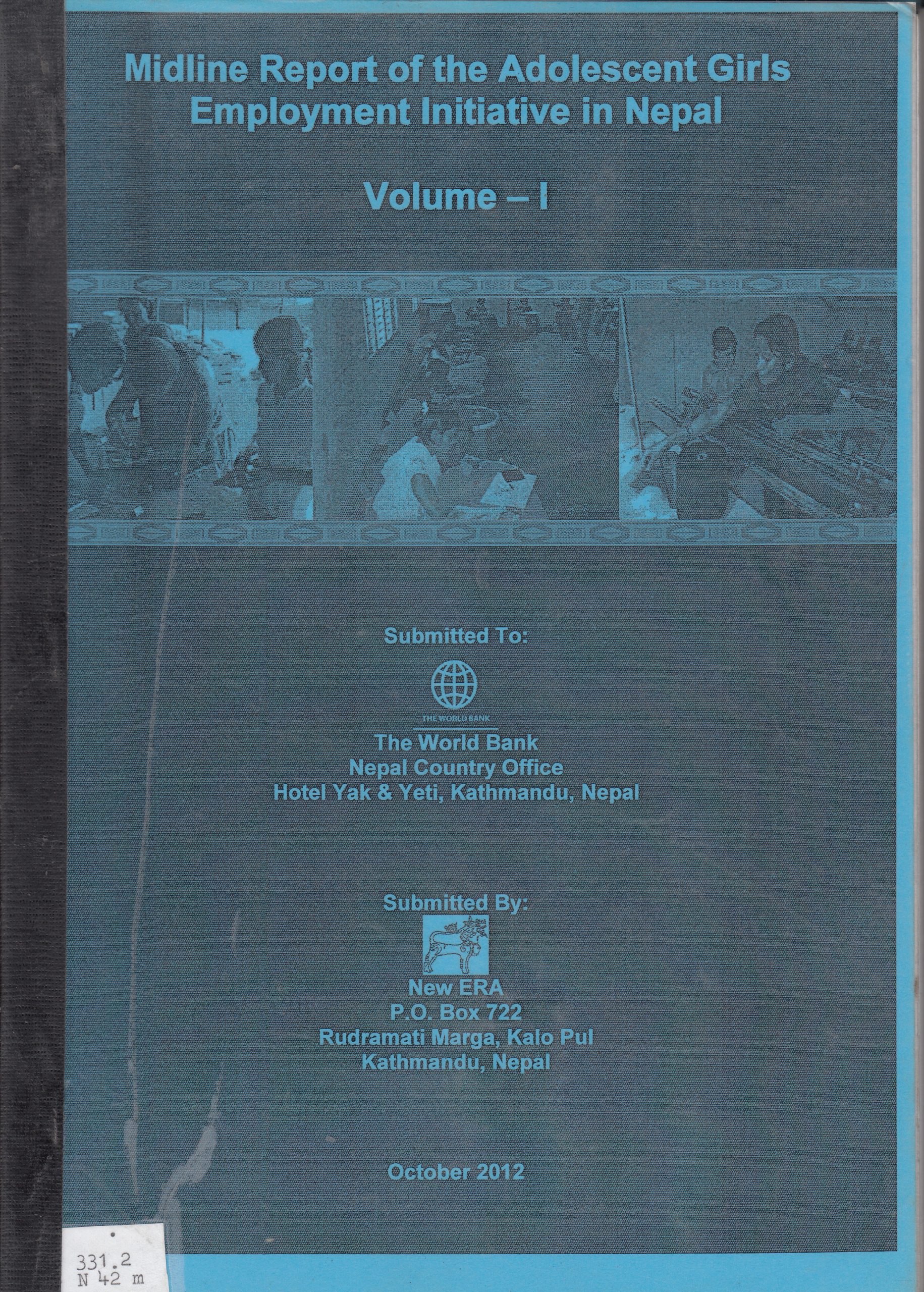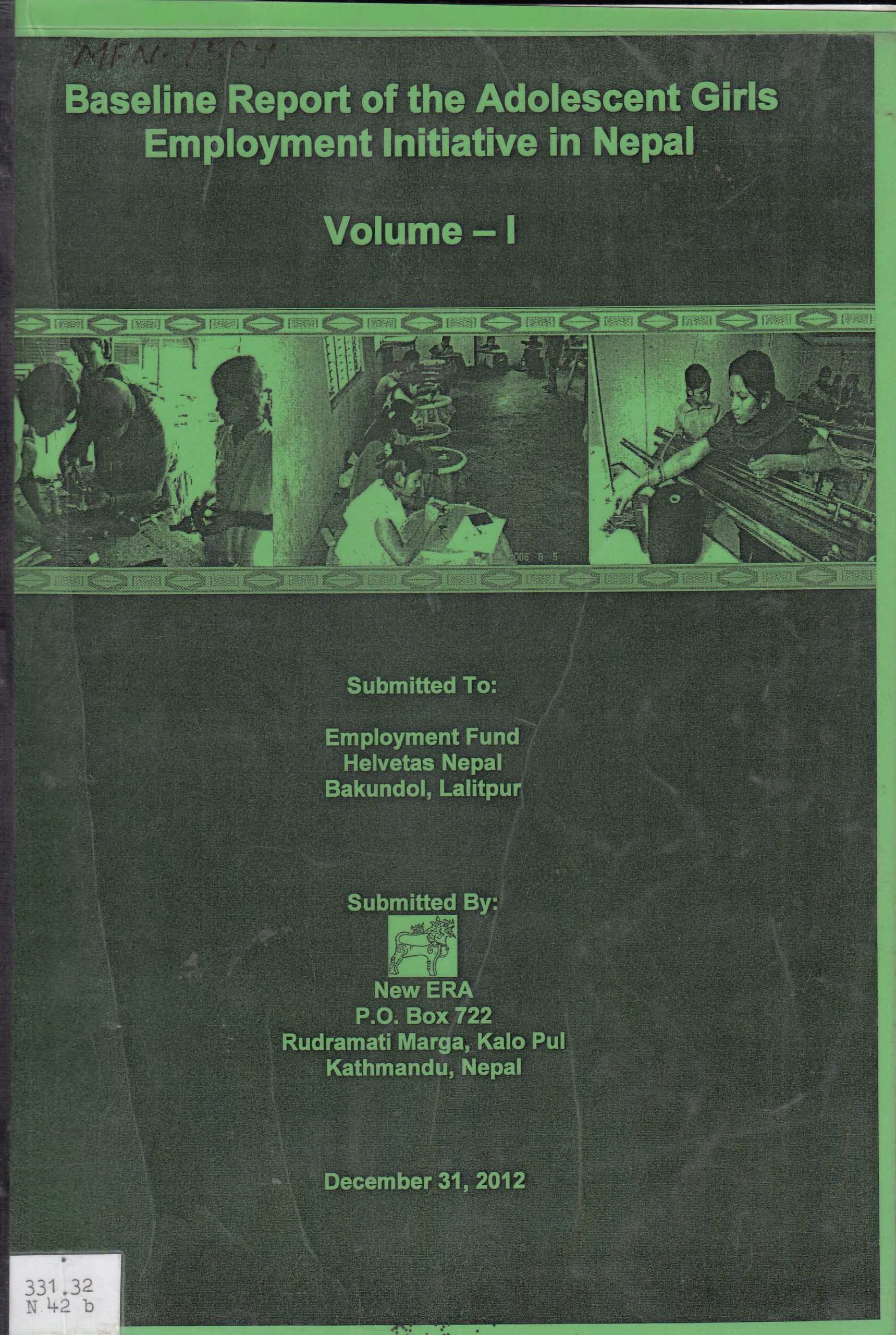The Feed the Future (FTF) program, led by USAID was implemented in 20 food insecure districts of western, mid-western and far-western regions, Nepal to reduce poverty, and under nutrition through accelerating growth of the agriculture sector by addressing the root causes of under nutrition and reducing gender inequality. This study was designed to determine significant change over time on key outcome and impact indicators by assessing agriculture productivity, daily per capita income, nutrition status, prevalence of poverty, resilience, women’s empowerment, dietary diversity, appropriate feeding practices, and hygienic environments improvement.
Report Type: Economic Development
Public Expenditure Tracking Survey and Quantitative Service Delivery Survey of Social Security Entitlements
This study is one of the activities of the Multi Donor Trust Fund demand-side initiativein public financial management. This survey was carried out to generate evidence based feedback on an important program as well as an important service rendered by the VDCs and expected to raise awareness of Social Security Entitlements (SSE) recipients and their families about their entitlements and processes to access them. The study assessed the extent of leakages and leakage points; exclusion of eligible person and reasons; the social impacts of SSE payments on beneficiaries.
Nepal Public Expenditure and Quantitative Service Delivery Surveys for Fertilizer and Seed Distribution Program
The Government of Nepal provided a huge amount of subsidies under Fertilizer Program, and the Seed Program, targeted to smaller farmers and intends to increase their access and use of improved inputs that enhance to increase productivity and production of major cereal grains. This survey was to analyse the flow of subsidy from the
source to the beneficiaries. The study assessed existing eligibility rules and access of targeted farmers to subsidized inputs; effectiveness of the existing distribution mechanism; leakage of subsidized inputs to non-targeted farmers; and effectiveness of existing governance and oversight arrangements.
Are Citizens Receiving Their Social Security Entitlements at Right Time and Right Amount
Program for Accountability in Nepal (PRAN) is a multi donor initiative to improve accountability in the public financial management of the Government of Nepal including both service delivery or supply side and the demand side. This study was to improved accountability of VDCs by identifying areas where gaps and lapses occur in SSE distribution and to provide a snapshot of the current accountability status using right time and right amount by citizens eligible to receive these in the three categories, as key indicators.
Youth Savings Patterns and Performance in Colombia, Ghana, Kenya and Nepal
Supported by the Master Card Foundation, Youth Save was a consortium project of four organizations, Save the children, the Center for Social Development at Washington University in St Louis (CSD), the New America Foundation, and Consultative Group to Assist the Poor (CGAP). It is a multi-country learning project to encourage low income young people aged 12- 18 in selected developing countries to save through formal sources for their better future. The project was being implemented in Nepal, Colombia, Kenya and Ghana since 2010 and planned to continue up to 2014. Save the children International (SC), Bank of Kathmandu (BoK), New ERA and Local NGOs are involved in implementing the Youth Save program in Nepal. The basic objectives of the program are (i) Increase financial literacy among youth (age 12-18 years); (ii) Increase accessibility of financial institutions to them and (iii) Educate youth about savings and increase saving habit among them. New ERA was involved as a national Research Partner (RP) of the Center for Social Development at Washington University in St. Louis, USA in this initiative.
Adolescent Girls Employment Initiative in Nepal – First Follow Up Survey 2013
The Adolescent Girls Employment Initiative (AGEI) project is the World Bank led program in partnership with the Nike Foundation and the governments of Sweden, Norway, the United Kingdom, and Denmark in five low-income and post conflict countries (Afghanistan, Liberia, Nepal, Rwanda, and South Sudan) from year 2008. This initiative was to promote the economic empowerment of adolescent girls and young women by offering training and mentorship to facilitate young women’s transition to work and sustainable increase women’s participation in economic activities. In Nepal, Helvitas, an international NGO which serves as the Employment Fund Secretariat (EFS), has been executing skills training and employment program in different parts of the country. New ERA, being a national independent research organization, has served a series of surveys of AGEI Nepal. Those surveys are: Baseline survey 2010, AGEI 2011 Baseline, and Midline Survey, AGEI 2012 Baseline; Mid-line and Second Follow-up Survey, and AGEI 2013 First Follow-up Survey. The baseline surveys used to benchmark status before the program intervention and the endline surveys was to compare the post intervention performance indicators. The study assessed the indicator on education, gender empowerment, risk taking behaviors, remittance and household income, food behavior, risk behaviors and participation in skill development training. The study also assesses perception of household head on satisfaction with various aspects of their lives such as education, job or profession, dwelling, income and overall satisfaction with their life.
Second Follow-Up Study of the Adolescent Girls Employment Initiative, Nepal 2012
This second follow-up of Adolescent Girls Employment Initiative (AGEI) Survey 2012 was designed to compare the pre and post intervention performance in the treatment and control groups in comparison with the First Follow-up Survey 2011 and 2010 Baseline Survey. The study determined the trend of various indicators in the last three surveys Baseline, first follow-up and second follow-up survey. The study assesses data on demographic, social and economic characteristics; gender empowerment; entrepreneurship, income and expenditure, HIV/AIDS awareness and risk taking behaviors.
Assessment of Demand for Mobile Banking
Nepal Economic, Agriculture and Trade Activity (NEAT) program was designed and implemented with financial assistance of USAID in 14 districts of Western and Mid-western Development Regions of Nepal. Strengthening microfinance policy and institutions to increase the access of women, poor and disadvantaged to financial services was a component among the five component of this program. The project feel clear need ‘The Mobile Banking Market in Nepal’ for a channel which allows Nepalese to access financial services more easily. This study was to assess the uses mobile phone, financial uses and demands of target population. The study also identified the areas that could potentially be addressed through mobile and branch-less banking channels.
Midline Survey for the Adolescent Girls Employment Initiative, Nepal 2012
This Midline Survey 2012 of Adolescent Girls Employment Initiative (AGEI) Program was designed to compare data on post-intervention performance indicators collected during the 2011 Baseline Survey and highlights any difference or trends across indicators between treatment and control groups in the two survey periods. The study assesses the indicators on education status, participation in skill development training, gender empowerment, risk taking behaviors, remittance and household income, food behavior, risk behaviors and awareness on HIV/AIDS.
Baseline Survey for the Adolescent Girls Employment Initiative, Nepal 2012
The principle objective of this Baseline 2012 survey of AGEI was designed to establish benchmark characteristics of survey respondents of the AGEI program on key socio-economic indicators. The study assesses data on demographic, social and economic characteristics of household and individual adolescents; gender empowerment; entrepreneurship, HIV/AIDS awareness and risk taking behaviors.



